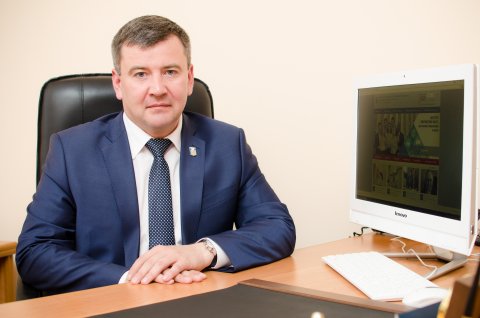In June of 2018, an industrial cluster for development and manufacture of electric drives for transport vehicles within the frameworks of import substitution strategy is planned to be created on the grounds of South Ural State University under support of Association of Clusters and Technology Parks of the Russian Federation. Vice-Rector for Research, Alexander Diakonov, told us about prioritized areas and prospects of the university’s development in scientific and innovative activity.
– Alexander Anatolyevich, by taking part in Project 5-100, the university determined its prioritized areas for scientific activity development: supercomputing, engineering, human sciences, and natural sciences. Have the priorities changed during the past 3 years of participation in the Project? Have any new directions been determined?
– The priorities remained the same; within the frameworks of Project 5-100, SUSU is still following the Roadmap where the main directions of development and modernization of the university are described. The main novelty that should be noted is creating at the university two strategic academic units (SAU): “Smart industry” and “Smart education”. In the frameworks of stage two of its transformation, SUSU will focus on developing the breakthrough areas – the research integrating computer sciences with engineering, humanities and economic sciences, etc., which is connected with active introduction into the industry of Internet of things.

One of the main industrial partners with whom we have been cooperating within the frameworks of implementation of the “Smart industry” SAU is Magnitogorsk Metallurgical Plant (MMK). In 2018, we signed 5 Technical Requirements Specifications with the MMK, three of which directly concern implementation of “smart technologies”, connected with development of Industry 4.0, into manufacture. First of all, this is development of a system for assessing the state of equipment and its influence on quality of products manufactured by the Plant with the use of intelligent wireless sensors and analyzing data transmitted from these sensors.

The second MMK-SUSU project is connected with development of computer vision system which analyzes condition of manufactured products using mechanisms of artificial neural networks and detects possible defects. The university is developing a system which would allow for computerizing the process of analyzing the quality of rolling using the technology of deep learning. Digital vision allows revealing various defects of such type.
Thirdly, we are planning on making one of the MMK units to be completely virtual but with augmented reality, using the system of digital twins. A digital twin in the real-time mode gets synchronized with manufacture processes by processing of data received from intelligent wireless sensors. By collecting digital twins of various equipment and technology processes, we create a digital twin of the entire enterprise. This gives us the opportunity to analyze current situation and allows predicting operation of specific units of equipment and the enterprise as a whole. Examples of such decisions are virtual 3D models of rolling mills and hydroelectric power stations.
All three projects are of interdisciplinary nature; they are developed with participation of the leading scientists of the School of Electrical Engineering and Computer Science, Polytechnic Institute, and the Uctech-Profi small innovative enterprise of SUSU.

– What is the university planning to achieve with implementation of the “Smart industry” SAU?
– “Smart industry” is impossible without the use of digital technology, introduction of innovative manufacture which uses Big Data methods (intellingent analysis of big data) for processing information received from sensor networks. Russian and foreign enterprises under conditions of global competition need innovative unique decisions for full implementation of their potential; at the present time, such decisions can only be offered by SUSU which closely cooperates with the world’s leader in producing sensor systems for enterprises of Industry 4.0, the Emerson Corporation, along with SMS group and the MMK. In this area, our university is a considerable competitor to the West.

– For what did SUSU express initiative to create an industrial cluster in the region?
– A cluster for development and manufacture of electric drives for transport vehicles is the university’s initiative supported by Deputy Chairman of the Military-Industrial Commission of the Russian Federation, Oleg Ivanovich Bochkarev. The initiative is targeted at creation of a mutually beneficial cooperation between industrial enterprises of the region (there must be not less than 10 of them) and the university in order to create innovative decisions within the frameworks of import substitution strategy. As of today, we have two enterprises with whom we cooperate within the frameworks of development of electric drives of the “new generation”: they are Mechatronika Transporta (Transport Mechatronics) (Miass) and Rezonans (Resonance) Company (Chelyabinsk). At the moment we are determining the rest of potential partners of the future industrial cluster and the types of products that are planned to be manufactured. A meeting of the Ministry of Industry and Trade, where the issue about creating the regional industrial cluster will be finalized, is to be held in June.




